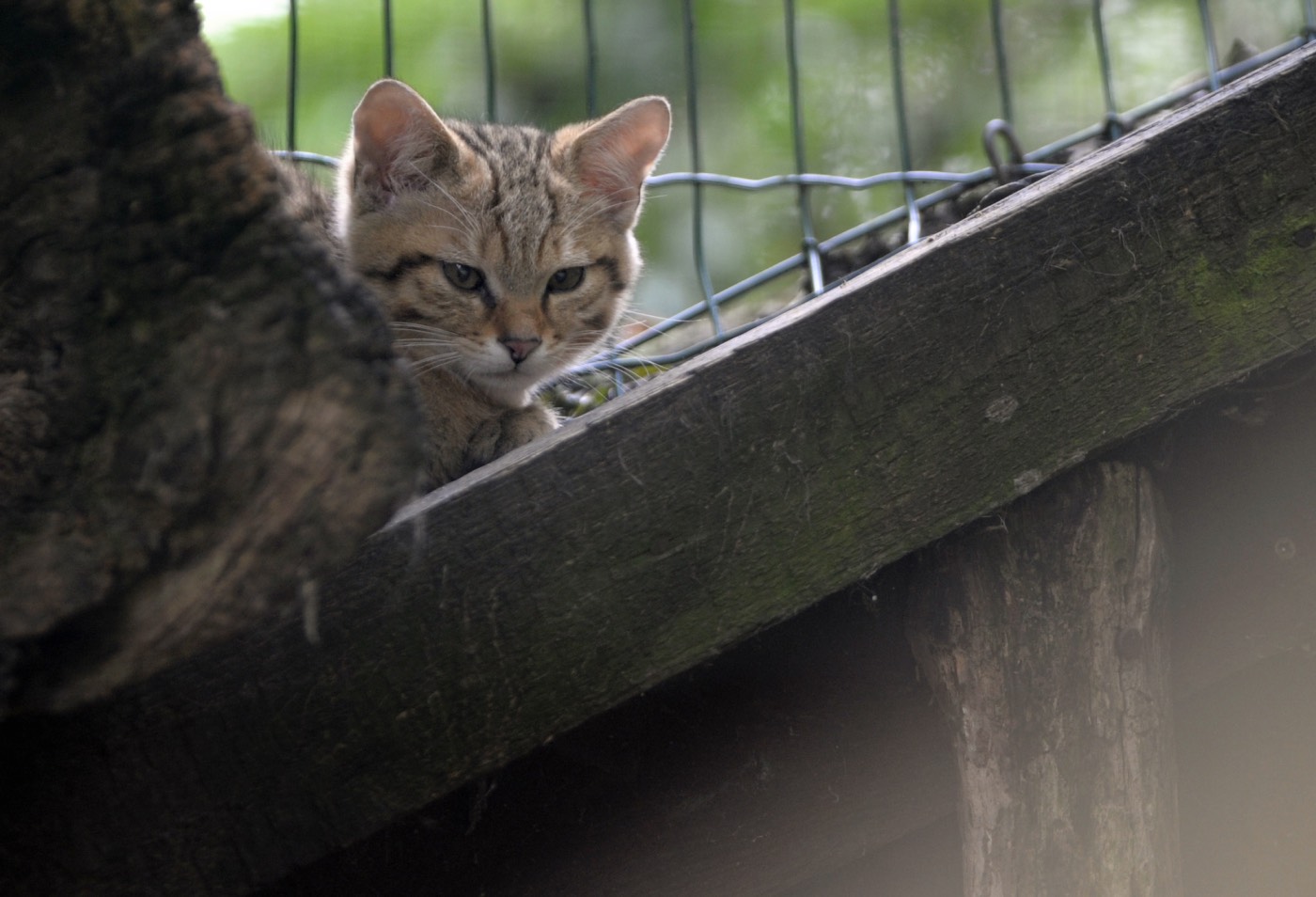Wildcats reconquer Dutch forests
Rewilding of woodlands has encouraged the return of the long-lost feline

A free daily email with the biggest news stories of the day – and the best features from TheWeek.com
You are now subscribed
Your newsletter sign-up was successful
Wildcats have been spotted in the Netherlands for the first time in several centuries.
“The return of the animal, with its distinctive round-tipped and black-ringed tail, is a sign of the rewilding of forests in the southern Dutch region of Limburg,” says The Guardian. Wildcats disappeared from the area in the middle ages, due to hunting and forest clearance.
Hettie Meertens, a biologist who works for the ARK conservation group, said the cats would benefit from changing forest management, which now favours nature over wood harvesting. This leads to wilder forests, with fallen trees and hollow spaces that offer wildcats places to rest.
The Week
Escape your echo chamber. Get the facts behind the news, plus analysis from multiple perspectives.

Sign up for The Week's Free Newsletters
From our morning news briefing to a weekly Good News Newsletter, get the best of The Week delivered directly to your inbox.
From our morning news briefing to a weekly Good News Newsletter, get the best of The Week delivered directly to your inbox.
Conservationists have also been encouraging farmers to plant “cat-kind” hedges in their fields to provide habitat for voles, the wildcats’ natural prey.
“The population is small but it is increasing,” said Meertens, and conservationists are confident that they will soon be seen over a much wider area.
ARK plans to count the number of wildcats next year. This task will involve smearing valerian oil, a scent that attracts the cats, on to the branches of trees to encourage them to linger under the lenses of cameras.
The wildcat was once endemic across Eurasia and Africa, says Nature World News. It has longer legs and a flatter head than its domestic cousin.
A free daily email with the biggest news stories of the day – and the best features from TheWeek.com
It has been extinct in England for more than 200 years, and although “a population of about 300 wildcats remains in Scotland”, says the BBC, “it has been called ‘functionally extinct’ due to interbreeding with domestic cats”.
A wildlife charity, the Wildwood Trust, is hoping to re-establish the species in the UK within the next few years.
-
 Democrats push for ICE accountability
Democrats push for ICE accountabilityFeature U.S. citizens shot and violently detained by immigration agents testify at Capitol Hill hearing
-
 The price of sporting glory
The price of sporting gloryFeature The Milan-Cortina Winter Olympics kicked off this week. Will Italy regret playing host?
-
 Fulton County: A dress rehearsal for election theft?
Fulton County: A dress rehearsal for election theft?Feature Director of National Intelligence Tulsi Gabbard is Trump's de facto ‘voter fraud’ czar
-
 Epstein files topple law CEO, roil UK government
Epstein files topple law CEO, roil UK governmentSpeed Read Peter Mandelson, Britain’s former ambassador to the US, is caught up in the scandal
-
 Iran and US prepare to meet after skirmishes
Iran and US prepare to meet after skirmishesSpeed Read The incident comes amid heightened tensions in the Middle East
-
 Israel retrieves final hostage’s body from Gaza
Israel retrieves final hostage’s body from GazaSpeed Read The 24-year-old police officer was killed during the initial Hamas attack
-
 China’s Xi targets top general in growing purge
China’s Xi targets top general in growing purgeSpeed Read Zhang Youxia is being investigated over ‘grave violations’ of the law
-
 Panama and Canada are negotiating over a crucial copper mine
Panama and Canada are negotiating over a crucial copper mineIn the Spotlight Panama is set to make a final decision on the mine this summer
-
 Why Greenland’s natural resources are nearly impossible to mine
Why Greenland’s natural resources are nearly impossible to mineThe Explainer The country’s natural landscape makes the task extremely difficult
-
 Iran cuts internet as protests escalate
Iran cuts internet as protests escalateSpeed Reada Government buildings across the country have been set on fire
-
 US nabs ‘shadow’ tanker claimed by Russia
US nabs ‘shadow’ tanker claimed by RussiaSpeed Read The ship was one of two vessels seized by the US military